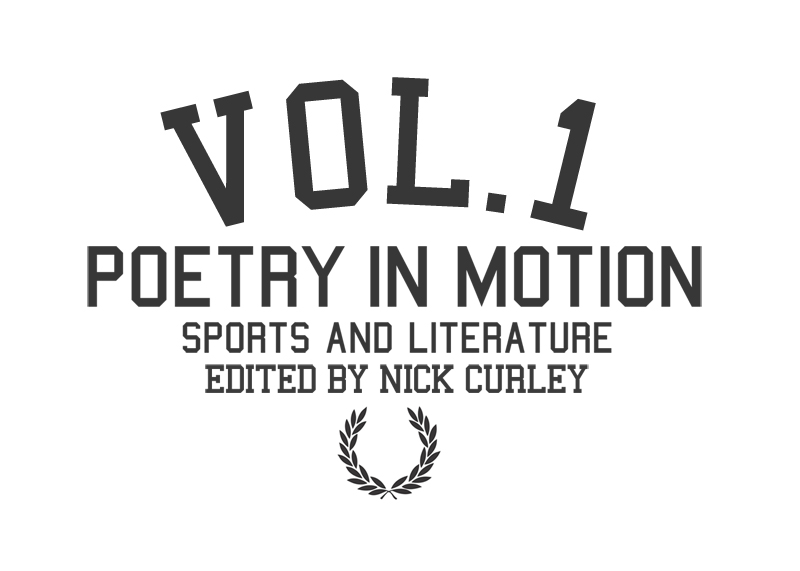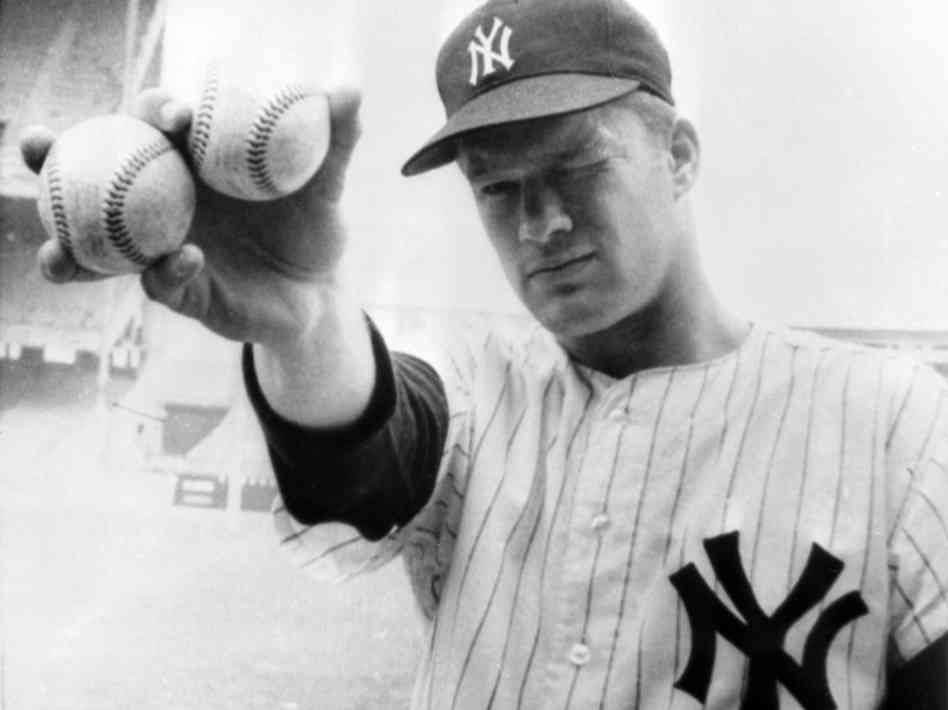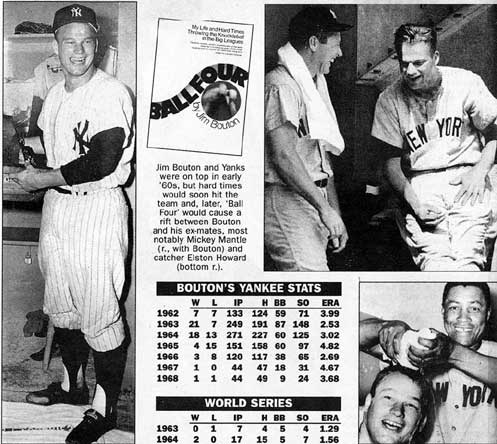
This is an essay about Ball Four, a tell-all memoir of Major and Minor League Baseball published in 1970 by author/major league knuckleballer Jim Bouton. More specifically it is about why pitchers are often enigmatic. Most specifically of all it is about Bouton’s pained desire – common among achievers – to be perfect by his own standards when he was already excellent by those of the universe at large. But first, let’s go crazy.

Book reading sports fans understandably champion those athletes who are also “characters”. We celebrate the no-hitters of David Wells and Doc Ellis, thrown while drunk and on acid respectively. In the hallowed halls of the Intellectual Bro/Chick Hall of Fame sits 1970s starter Bill Lee, who jogged each day to Fenway Park and sprinkled weed on his pancakes because he thought it made him impervious to Boston bus fumes. Rube Waddell, one of the best players of baseball’s turn-of-the-century infancy, was famed for leaving games to chase after passing fire engines, growing deeply distracted by shiny objects in the crowd, and exhibiting other traits that would by today’s medical standards cement him as mentally handicapped. Modern era jock-eccentrics include Charlie Sheen cohort Brian Wilson, and knuckleballer R.A. Dickey, who recently published a memoir that he spent years fine-tuning into an unlikely hero’s quest/pseudo-Zen treatise on the art of grace under fire. Stand-up comedian Brody Stevens was once fastball-hurling Arizona State University prospect Steven Brody, before recently filming a career-fueled manic episode that put him in the hospital and made his HBO Go series Enjoy It! a worthy cult phenomenon.
It seems not an accident that all of these athletes are pitchers, positioned in baseball’s most important, high-pressured, and singular role. My father is a pitcher, of the hometown hero recreational league variety: he’s played baseball for nearly his entire life, pitched for nearly that long. Out of both self-awareness and a desire to be an exception to the rule, he says that there is a “diva” quality to pitchers – that they wield big, easily bruised egos. Pitchers are eccentrics not in a Dennis Rodman type of bombastic model, assaulting you with power plays for notoriety. The strangest pitchers – as with all of life’s strangest people – rarely view themselves as odd, often trying to mask or suppress their eccentricity to no avail.
And so as an avid reader who also loves sports, I am always looking for the Homeric hitters and gridiron Gatsbys. The gymnasts with Didion’s grit and Grace Paley’s ability to turn on a dime. The Barry Hannah Barbarians, if you will.
The most triumphant quality in Ball Four is that Bouton proves immensely vulnerable, which is another way of saying that he’s immensely honest. The book’s first words are “I’m 30 years old and I have these dreams.” Because Bouton’s introduction then details his nigh-impossibly fantasies – of being named the Sports Illustrated Comeback Player of the Year, of being traded by his struggling team (the now-defunct Seattle Pilots) to a championship contender like the Detroit Tigers, of being the recipient of a ticker-tape parade that isn’t soon coming – there are ominous goosebumps in the stark simplicity of his statement. I have these dreams, he says, the way one might say I have some pubic lice. As if his fantasies have become nightmares, hobgoblins to stave off in the woozy night. Later, Bouton says one of the saddest and bravest things I’ve ever read in a memoir: “I get a tremendous kick out of people wanting my autograph. In fact, I feel hurt if I go someplace where I think I should be recognized and no one asks me for it.” Throughout, Bouton takes pride in the fastball-shaved calluses forming on his fingertips, a rather crafty allusion to his hardening heart, and manic marriage to a game he genuinely both loves and loathes. “I have these dreams,” says Marlow, churning down the Congo River in pursuit of Kurtz.
Culturally, Ball Four is an interesting time capsule, in which Bouton tosses off lines like, “The knuckleball is groovy and still I can’t get into a game.” Bouton is not always a wordsmith – Dickey by comparison seems a more versed writer – but to his credit he is in complete opposition to the grandiose verbiage of milquetoast onlookers like David Halberstam or John Feinstein. We often misunderstand things by mythologizing them, despite the value of narratives as molds in which to cast our faces. Like that scene in Mrs. Doubtfire when Robin Williams conceals his face in a mask of Cool Whip. But Bouton never puts himself on a pedestal, or hides from the truth as Mrs. Doubtfire did. His diary entries are plainly written, yet there’s true elegance to his directness. They often have the air of what a soldier would write in a letter home, as if Bouton is so busy and harried in the line of fire that he must feed the beast quickly and without revision. In point of fact, this was so: Bouton claims to have written much of the book on found scraps of paper, scorecards, cocktail napkins, and airline sickness bags – the daily parchment of a mild celebrity.
Bouton also has the curious character trait of talking extensively about money. Franzen and Wallace would have loved to have written a character this mindfully minute in his number-crunching: the figures of his salary are discussed at length, and Bouton acknowledges early and often that unlike most athletes, he loved the fine points of negotiating and renegotiating his contracts. What Bouton is constantly measuring, as frankly as he can, is not his self-worth, but his worth to his peers and employers. He is dead set on being as subjective as he can, such that his minor embarrassments and major achievements are tossed off with the same syntax and cadence. “Decided to get a haircut today,” begins one chapter dated February 28. “I didn’t want to have a long-hair image, so I got a really short haircut and look like a stormtrooper. It’s terrible, but it won’t hurt me.” One soon realizes reading Ball Four that Bouton is quietly impervious to pains physical and emotional that greet him through his chronicled year. Only these dreams pierce his armor.

As occupations, pitcher and author share a bond of singularity: of being an orchestrator in their respective arts, and of being solo artists in mediums which take a village. The yang in that equation conjures a loner vibe, or at least that of one who spends a lot of time in his or her own head. But as Bouton says, “Stan Musial has more influence with American kids than any Geography teacher. Ted Williams is better known than any of our poets, Mickey Mantle more admired than our scientists.”
So how would these publishing parties be different if we poured the champagne on one another instead of drinking it?
Writers often cheer mediocre smart athletes over great dumb ones. We pine for the old heroes, and hope that Grant Hill’s knees are doing okay. We hope that Greg Oden, #1 pick in the 2007 NBA Draft isn’t too depressed about his status as an also-ran Trivial Pursuit factoid; that he’s having fun not being draft pick #2 and current league MVP Kevin Durant. Just as writers are ever prone to distraction, self-doubt, and superstition gnawing away at their will power, so too are pitchers prone to self-psyche-outs. Ball Four is required reading for you pick-up game athletes and sometime-writers alike, if only to feed and fuel your desperation, your sickening hunger to achieve. These dreams of you, as Van Morrison once said. And as Steve Erickson once said. And as Kevin Garnett once said.
We’re drawn to athletes whose verbal acumen and personality approximate their sporting skill, given that we so often divide mental and physical capability, both culturally and physiologically. Even Bouton throughout Ball Four ever distances himself from his teammates, whom he dubs “Neanderthals”, while at the same time ever praising their ability to make him laugh, and ever seeking their praise (and ours, and his own). The mechanics of pitching, if you go as far as Arizona State, become unified with team-branded practices of group meditation in pursuit of calm and rational thinking: a brain cocoon to enter while standing on the mound before thousands of screaming faces. Mind over matter goes the phrase, when just as often our own minds are precisely what we’re trying to hurdle.
Follow Vol. 1 Brooklyn on Twitter, Facebook, Google +, our Tumblr, and sign up for our mailing list.

